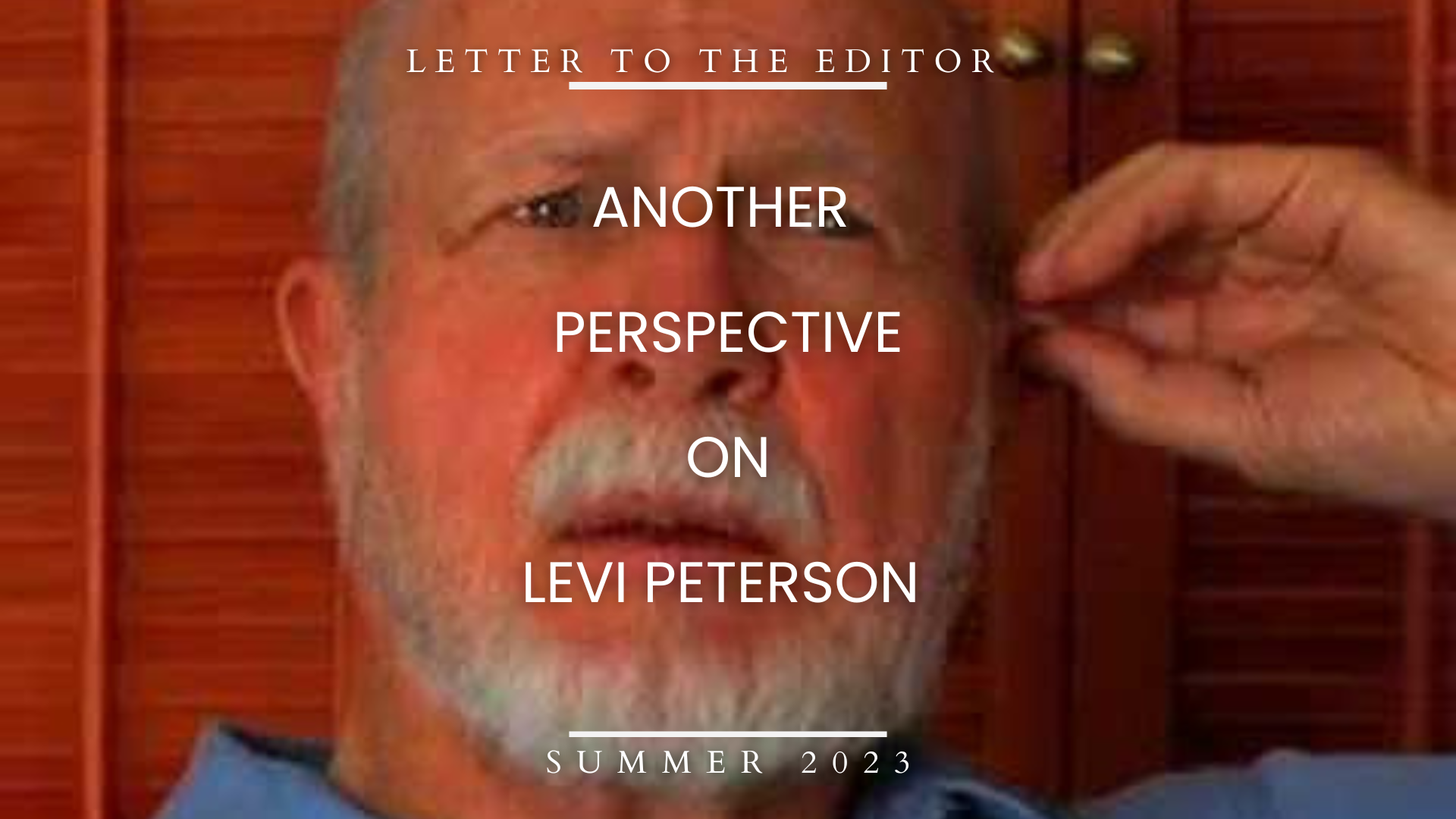Articles/Essays – Volume 56, No. 2
Letter to the Editor: Another Perspective on Levi Peterson
Dear Editor,
After reading Melissa Leilani Larson’s review of Levi Peterson’s short story collection, Losing a Bit of Eden (“The Promise and Limitations of Working-Class Male Protagonists,” Dialogue, Summer 2022), I would like to offer a different perspective. I had an easier time reading the stories than she did; I saw the misogyny as satirized.
Peterson’s main characters—mostly male, mostly rural Western, all ambivalently Mormon—range in age from fourteen (“Badge and Bryant”) to sixty-five (Rulon in “The Return of the Native”). The stories take place in the late nineteenth century, the twentieth century, and the early twenty-first century. Most importantly, the protagonists lose at least “a bit of Eden” (their innocence, their assumptions about themselves and others); some lose a lot. Many of the men behave badly; most suffer intense guilt. The sins that torment them almost always involve sex. These men ultimately regard themselves as weak, not manly. The reader is asked to understand them.
There are a couple of men who seem unredeemable—not main characters but characters who are nevertheless important to the action in the story—and they are both shot to death, one by a woman.
Although men outnumber women in the stories, I found many of the women to be compelling characters, even when their stories are not told from their (literary) point of view. A contemporary woman narrates the title story, in which she is trapped, during a snowstorm, in a motel room with her bishop. In “Cedar City,” the point of view moves back and forth between the unworthy missionary and the young woman he leaves behind. Usually, we get to know the female characters from dialogue and actions.
Some of the collection’s important female characters succumb to sexual temptation and, like their male counterparts, feel guilty. The major women characters are loyal; most are resourceful, strong. For example, the title character of “The Shyster,” in a story narrated by her increasingly supportive husband, is a dynamic, feminist defense attorney in a small town with a provincial ward. Self-reliant Iris, in “Bode and Iris,” intelligently juxtaposes the Mormon and Baptist religions.
Except for the two Vietnamese, one African American, and two Latina prostitutes defended by “The Shyster,” there are no persons of color in the collection. Yet, unlike Larson, I found the scope of the book wide—wide enough for me to temporarily live in the worlds of two libidinous teenage boys from Linroth, Arizona; an uneasily rehabbed Seattle street addict in a derelict logging town named Beaufort; and a polygamous family in Oakley when nearby Park City was known for silver mines and a timbering camp.
As I reread some of the stories, I was caught up again in the drama. What would happen to Effie and Hoyt, to Jennie and Reeves, to Rulon, to Darby? Peterson is an adroit storyteller. I cared about the people in the stories—losing a little or a lot of Eden, they changed, they grew in ways they had never imagined. They journeyed into a brave new world.
Karen Rosenbaum
Kensington, California


 Back to full Issue
Back to full Issue

